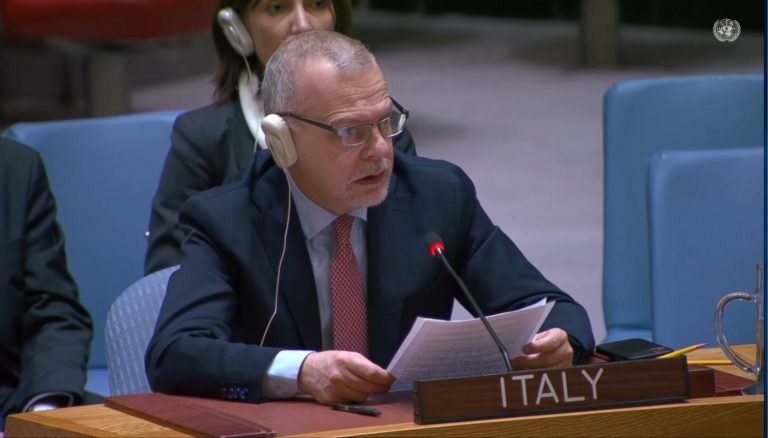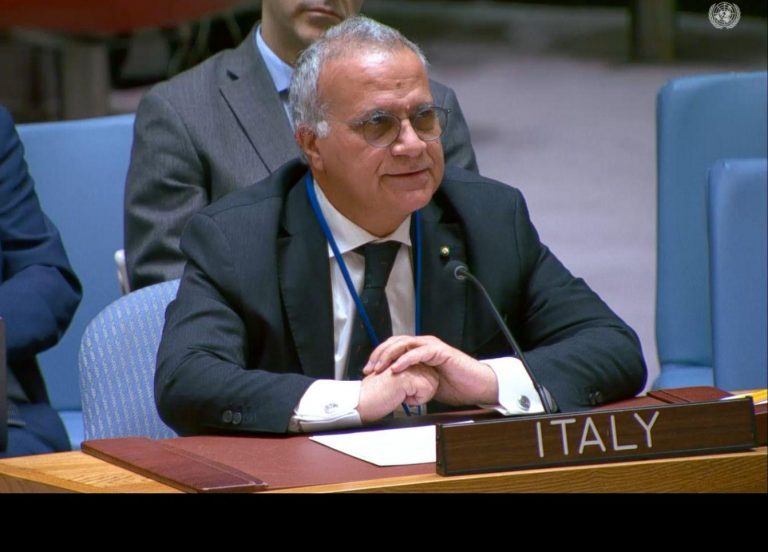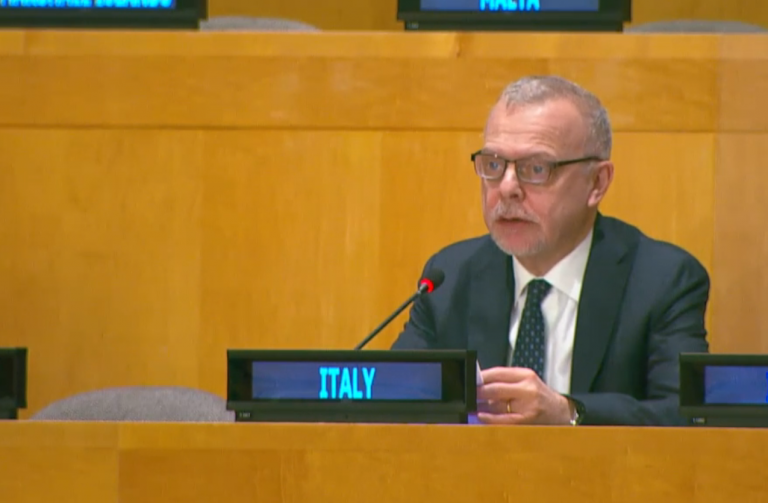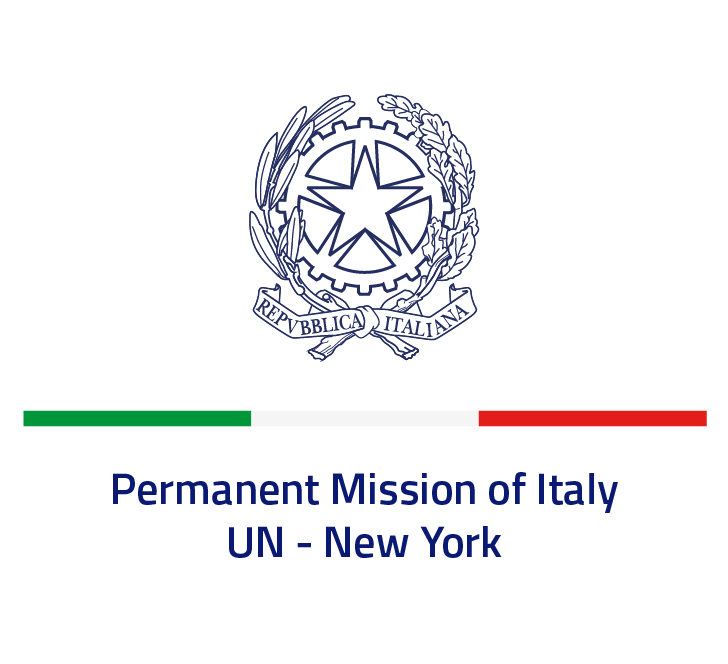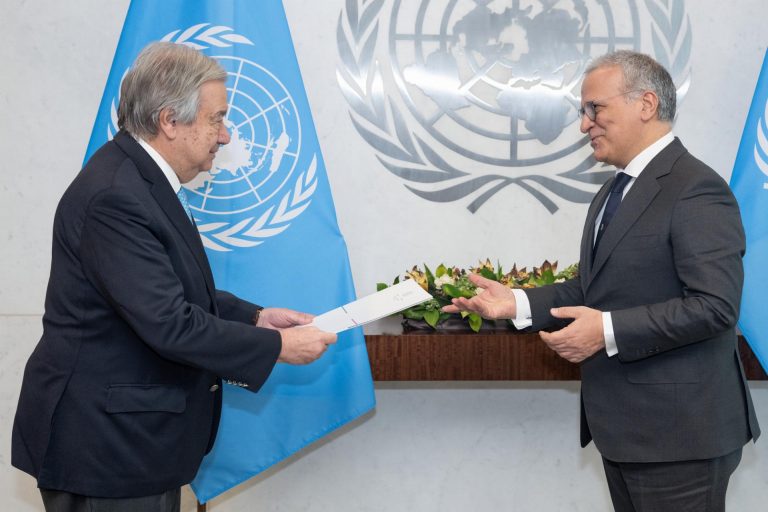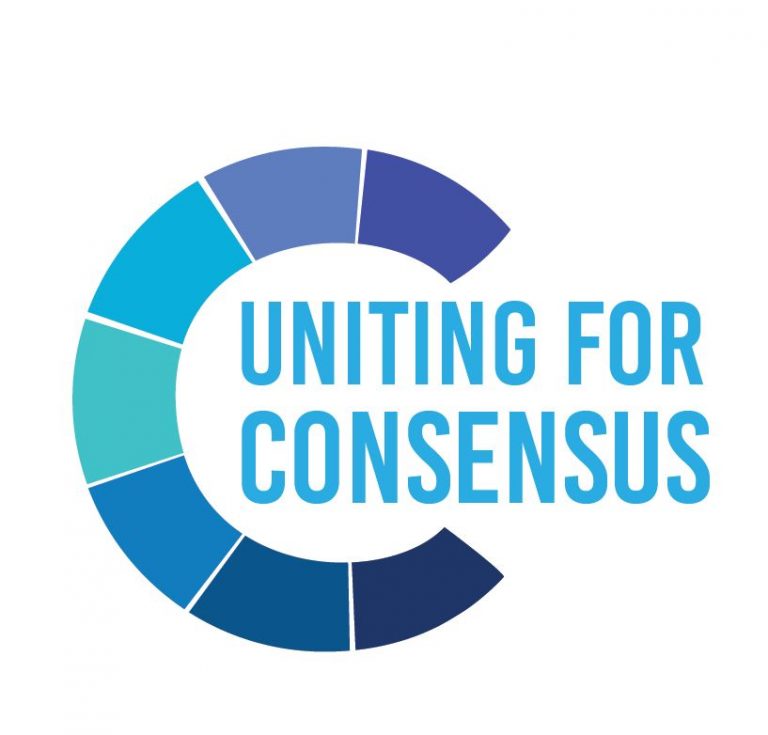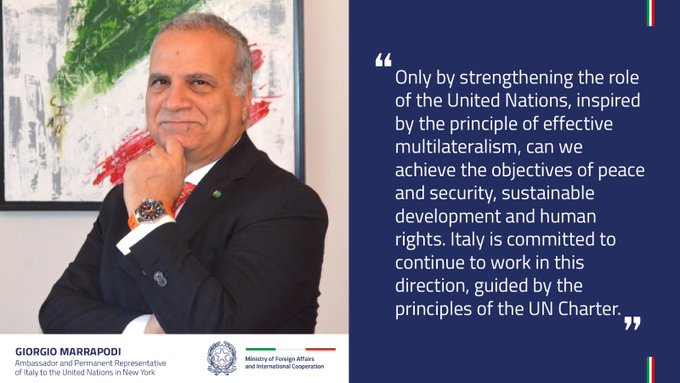Thank you Mr. President, Excellences, Ladies and Gentlemen,
While aligning myself with the EU statement, I wish to make a few remarks in a national capacity.
The respect and promotion of fundamental freedoms and human rights in the framework of domestic and international drug policies are not only moral imperatives: they are also a precondition for these policies to be truly effective. Italy strongly believes that “drugs and human rights” should be a pillar of international drug policies.
This Special Session represents a unique opportunity to increase our efforts to firmly place the human being and his or her health and well-being at the centre of drug policies, in line with the ultimate aim of the three drug conventions.
We should examine all the shortcomings in our current drug policies from a human rights perspective, both in demand and supply reduction, in order to make sure that the implementation of the international drug conventions is fully compliant with international humans rights standards.
Special attention should be dedicated to the specific needs of women, children, young people and vulnerable members of society. Not only because they require targeted measures – from a health and criminal justice perspective, for example – but also because we have evidence that the more vulnerable members of society are more frequently victims of human rights violations.
We welcome the reference in the UNGASS outcome document to informed consent to treatment by drug users. Since the introduction of informed consent to Italian law in the 1970s, we have gathered evidence that it is also crucial to successful treatment.
Access to controlled substances for medical purposes, which is one of the main challenges for the international drug control system, is also directly related to the right to treatment. The recent report of the INCB on this subject makes a timely and useful contribution to this issue.
This Special Session is a unique opportunity to increase our efforts to ensure that our criminal justice systems reflect fully the principle of proportionality, which also has concrete implications for the protection of human rights. According to the Conventions, “Serious offences shall be liable to adequate punishment particularly by imprisonment,” while minor offences should not necessarily be punished by harsh criminal sanctions. Punitive solutions targeting drug users violate the spirit of the Conventions and do not help people to recover. We should reserve long prison sentences for drug traffickers. Furthermore, both people who use drugs and drug traffickers should enjoy the right to access to adequate health care, the right to non-discrimination, protection from mistreatment and torture, and the right to life.
As the International Narcotics Control Board, the United Nations Office on Drugs and Crime, and the High Commissioner for Human Rights recognize, the death penalty is not in the letter or the spirit of the international drug conventions, whose ultimate aim is the health and well-being of humankind.
Although the preparations for the Special Session have been a useful opportunity to stimulate debate on this matter, we deeply regret that the outcome document does not address this crucial aspect. We welcome the steps taken by some States to reduce the number of offenses on which the death penalty can be imposed, as well as steps to limit its application. We call on those Member States who still impose the death penalty for drug-related crimes to adopt a moratorium on its use, as a first step towards its ultimate abolition.
Thank you.







